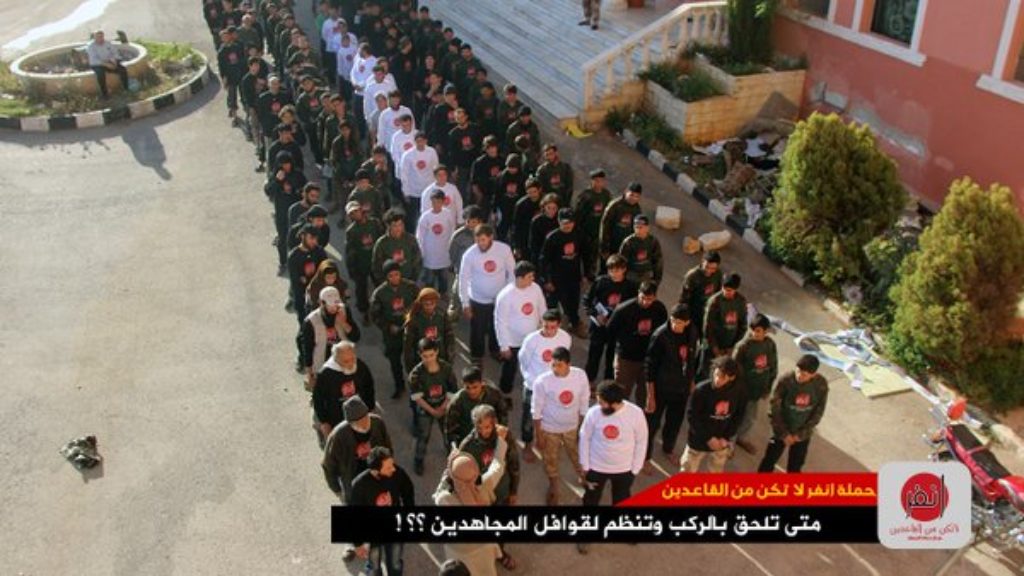Earlier this year, we asked you to help us find out which Democratic superdelegates are also lobbyists. We didn’t want to limit it to just registered lobbyists, because there’s an increasing number of people in Washington who do what most of us would think of as lobbying activity, but avoid registering — known as “shadow lobbyists.” But that left us, and our readers, with some questions: What exactly is a shadow lobbyist? How do they avoid registering? How did we get here?
What is shadow lobbying?
Shadow lobbying refers to someone who performs advocacy to influence public policy, like meeting legislators or their staff, without registering as a lobbyist — and it’s a big problem for anyone who cares about transparency in Washington. (For further reading on this topic, you can’t do better than to read Lee Fang’s 2014 investigation of shadow lobbying at The Nation.)
If you just looked at the number of federal registered lobbyists, you would think lobbying was a dying profession. Since a peak of 14,829 registered lobbyists in 2007, the number has steadily declined; in 2015, it was 11,504. But it’s not that the lobbyists have packed up their offices and left D.C. According to the Center for Responsive Politics, the amount of money spent on lobbying has remained near its 2009 peak, even as the number of lobbyists has supposedly decreased: In 2015, $3.21 billion was spent on lobbying, down only slightly from $3.5 billion in 2009. (Some estimate that number, which is based on reported spending on lobbying registrations, is actually up to three times higher; we’ll get to that later.)
Shadow lobbying is also sometimes known as the “Daschle Loophole,” named after Tom Daschle. A former senator from South Dakota, Daschle worked as a “policy adviser” at lobbying shops like Alston and Bird and global firms like DLA Piper after leaving the Senate, but never registered as a lobbyist. As The Huffington Post pointed out, that doesn’t mean his clients didn’t “receive the full benefit of his contacts and expertise, and that those assets can’t be used to influence legislation.” Last month, Daschle unexpectedly registered as a lobbyist; however, there are many who followed his blueprint of behind-the-scenes influence.
After years of lobbying, Daschle finally registers as a lobbyist
 The pioneer of shadow influencing has put on paper what many have known for years — that he is, in fact, a lobbyist.
The pioneer of shadow influencing has put on paper what many have known for years — that he is, in fact, a lobbyist.
So where did all the lobbyists go?
The simple answer is nowhere. They’re still here — they just stopped registering as lobbyists.
The system of lobbying registration has never been ideal. Lee Fang notes that a General Accounting Office study in 1991 revealed more than 10,000 lobbyists who had failed to register, and of those who did register, “94 percent failed to complete their registration forms as required by law.” The 1995 Lobbying Disclosure Act (LDA), while far from perfect, cleaned up the system and clarified the definition of lobbying. In 2007, following the Jack Abramoff scandal, Congress passed the Honest Leadership and Open Government Act (HLOGA), which extended the “cooling off” period — the period of time after a lawmaker or their top staff leaves Congress during which they are forbidden from lobbying.
As the law stands now, lobbyists are required to register if they spend at least 20 percent of their time lobbying on behalf of a client, or if they make at least two contacts with covered government officials (members of the House or Senate, their staff and select members of executive agencies). Firms are also exempt from registration if their total income from an individual client is less than $3,000 per quarter.
The problem is that this threshold is reasonably easy to get around. I spoke to James Hickey, the president of the Association of Government Relations Professionals (AGRP), formerly the American League of Lobbyists. (That’s right: Even the people who represent lobbyists no longer call themselves lobbyists.1) He believes the 20-percent threshold doesn’t work as a way to measure lobbying activity: “Personally, and it’s not AGRP’s position, it’s mine, I think anybody who lobbies should register” — whether it makes up 20 percent of their time or not.
Hickey said there should be some exceptions — people “that ask their CEO to come in one day of the year for a fly-in to talk to half a dozen members,” for example, shouldn’t register. But “as long as that 20 percent threshold exists,” he said, “there’s no way those who are in charge of enforcement can keep tabs on what are roughly estimated to be 20,000 lobbyists in Washington, D.C.” (Hickey told me that he registers even though he doesn’t hit the 20 percent threshold because of his position as president of the AGRP.) The Government Affairs Yellow Book, for example, includes information for 23,000 “government affairs professionals” in Washington, more than twice the current number of registered lobbyists.
There’s data to back this up, too. According to a 2012 study by the Center for Responsive Politics:
More than 46 percent of the active 2011 lobbyists who did not report any activity in 2012 are still working for the same employers for whom they lobbied in 2011 — supporting the theory that many previously registered lobbyists are not meeting the technical requirement to report or have altered their activities just enough to escape filing.
American University Professor James Thurber, who’s studied lobbying for more than 30 years and served on the American Bar Association’s Lobbying Task Force when it recommended strengthening lobbying laws, said, “Anyone who is paid to influence public policy, we should know about it” — whether it’s Boeing or the Boy Scouts. Thurber thinks there are around 100,000 people working in lobbying and advocacy in Washington.
Another lobbyist I spoke to, Paul Kanitra, agreed that there are those in D.C. who “take advantage” of the “gray area” created by the lobbying disclosure laws. He runs a firm called LobbyIt that focuses on smaller clients, and its ethos is very different to other lobbying firms. Its website claims, “Large corporations and their high priced representation have a stranglehold on the Capitol,” describing the firm as a “new breed of lobbyists [who] know the United States is supposed to be a government of the people and for the people.” Kanitra argued that the obvious value for a lobbying firm of hiring a former lawmaker is their contacts, saying, “I have to imagine they aren’t sitting the members of Congress down and having them do research and write white papers all day long.”
Why would a lobbyist want to avoid registering?
There are a lot of reasons. It’s certainly possible that lobbyists might not want the public to know that their client is lobbying Congress, or how much they’re spending on it, but that wouldn’t explain the big drop in lobbying registrations after 2007. One big explanation is the passage of HLOGA in 2007, which tightened disclosure and penalties for registered lobbyists, which we wrote about in 2014: “Before these changes in the rules, individuals registered under the LDA just in case. There was no downside. Now, being a registered lobbyist subjects people to additional campaign finance disclosure and gift rules, as well as steep civil and criminal penalties for non-compliance. So, political lawyers simply say don’t register.”
Hickey pointed, as many others have, to the Obama administration’s 2009 decision to bar former lobbyists from working on “regulations or contracts directly and substantially related to their prior employer for two years” in his White House, saying it had a big effect on lobbyists: “If by being registered I preclude myself from that opportunity, then I think I’m going to have to look carefully at exactly my threshold and how much I lobby, and if I can justify the fact that I don’t do 20 percent or more, then I’m going to go ahead and deregister.” Thurber thinks that while the 2009 rule did have a big impact, along with the 2007 law, shadow lobbying has been a problem since “well before” those changes. “Basically, there has been no serious enforcement for decades,” Thurber said. “That did not change with the 2007 reform, except there was a surge in de-registrations after 2007.”
He’s right: There is very little enforcement of the Lobbying Disclosure Act. The Department of Justice has never brought criminal charges against anyone for failing to register as a lobbyist. According to Fang, “The Justice Department has largely pursued cases in which a registered lobbyist has failed to update a quarterly statement or fallen delinquent, and the House clerk or Senate secretary has spotted the error.” (I reached out to the Department of Justice to check if any cases had been filed since Fang’s article; they told me that their “office is unaware of any criminal cases brought under the Lobbying Disclosure Act. The U.S. Attorney’s Office for the District of Columbia has not brought a criminal case under the LDA.”). Kanitra pointed out that those who do register actually put themselves more at risk of investigation than those who just circumvent the system entirely, because they’re then open to being penalized for submitting registrations late or putting something incorrect on their registration forms.
Thurber says we could know a lot more about shadow lobbying than we do. The Government Accountability Office (GAO) does an audit of lobbying disclosure, examining how well lobbyists comply with the registration compliance — but it only looks at those who are registered. The audit doesn’t scrutinize “people who are actually lobbying but are not registered, which is what’s going on mainly in town.” He says the GAO has that authority “to look at all kinds of advocacy” under the existing law, but doesn’t.
What can be done to shine a light on shadow lobbying?
Some, like Thurber, advocate for expanding the definition of lobbying activity to include marketing, public relations and advertising costs. He believes if you include “all the ads, all the shadow lobbyist activities, all the marketing,” the money spent on lobbying is more like $9 billion. Many lobbying firms also have in-house strategic communications arms, and those sorts of services aren’t cheap — and neither are TV ad campaigns. The Glover Park Group, which received $7 million in lobbying income in 2015, boasts about its content creation services on its website:
GPG’s creative group melds left-brain and right-brain thinking to create campaigns that drive conversation, educate, persuade, sell and move to action.
It’s the story that matters, whether we tell it through a new website or blog, traditional ads, such as TV, radio, newspaper and magazine ads, billboards or bus wraps, or interactive and native ads across the social, mobile web. We use every tool available: photos and videos, infographics and sharegraphics, informational one-pagers and brochures, chart packs, slide decks, reports and white papers, and more.
Whether it’s a 30-second spot on national TV or an interactive digital ad on a news site, our creative output is stronger and more effective because it’s built on the input that only GPG’s combination of research and experience can provide.
But other lobbyists I spoke to disagreed with Thurber’s proposal. Hickey said, “Public relations is really a different discipline. Sometimes they overlap and sometimes they coordinate, but your goal for public relations is really company brand or product brand than it is for influencing legislation.” He argues: “If there’s no reference to that legislation, then it’d be hard for anyone to say that clearly falls in the realm of lobbying.”
Paul Kelly, a registered lobbyist and member of AGRP, concurred, saying these activities are protected by the First Amendment right to petition one’s government and that “policymakers ought to be very careful about treading into those waters to regulate those activities.”
Even Kanitra, who describes himself as an advocate for transparency and open government, sees problems with this idea. “The problem is, to find a definition that can’t be worked around is so incredibly difficult. I’m open to somebody telling me a specific threshold or a specific approach that would work that would actually wind up having an effect on the people who are abusing it now as opposed to the little guys.”
It’s certainly likely that some, maybe many, lobbyists would continue to find ways around any new regulation on registration. A good start would be enforcement of the existing law; until someone is held accountable for breaking the rules and circumventing the system, the laws have no weight. It’s also clear that there’s no shortage of informed ideas about reforms that could make the system work better, from the ABA Task Force recommendations to Thurber’s modest suggestion that congressional offices keep records of everyone who contacts them.
There will always be lobbying in Washington, and that’s not a bad thing. But it doesn’t have to stay in the shadows.














